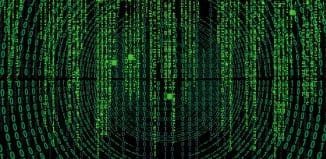Why Digital Forensics Must Be Regulated
This post is also available in:  עברית (Hebrew)
עברית (Hebrew)
Digital or computer forensics involves the identification, recovery, analysis and presentation in court of relevant information taken from electronic devices such as computers and cell phones. That information becomes digital evidence presented in court and designed to tie together people and events in time and space to establish causality for crimes or civil wrongs.
Digital forensics has been almost as revolutionary for criminal investigations as the advent of DNA testing. But law enforcement agencies face enormous challenges in gathering such evidence, complexity and cost among them. Meanwhile, the use of personal electronic devices has multiplied and the technology continues to rapidly evolve.
Nearly every criminal investigation now has a digital component, whether it is pinpointing the location of a cell phone, analyzing financial transactions or identifying suspects from surveillance video. But the computer forensics industry, which emerged in the late 1990s and began gaining traction among police agencies around 2004, is ever-changing and expensive. Furthermore, due to the sheer number of cases, laboratories are often backed up and take a long time to get to specific evidence.
Another issue – a conceptual one – is the concern about what investigators can and cannot confiscate. Courts in everyday criminal cases have long grappled with that question as cell phones and other personal devices are increasingly interconnected and capturing more of people’s lives. Cell phones and personal digital devices, the court found, are different from their analogues, such as address books and wallets, due to the sheer volume and type of sensitive personal records they can store.
The main problem seems to be that Unlike DNA analysis, there’s no standardized protocol for identifying, recovering, or processing digital evidence. As a result, two different technicians at different crime labs might reach different conclusions about a particular piece of evidence because they used different equipment or had divergent training. Because the people who recover, analyze, process and testify about digital evidence are influential in court proceedings, they must be ethical in their dealings with the legal system.
However, there isn’t a code of ethics that governs the professional behavior of digital forensics practitioners.
Many practitioners, if not most, agree that such a code and protocol is needed, and in the past years there have been conferences and workshops regarding this matter although no definite conclusion was reached. The answers to these tough challenges cannot come soon enough, considering the major role digital forensics now plays in our justice system.





























